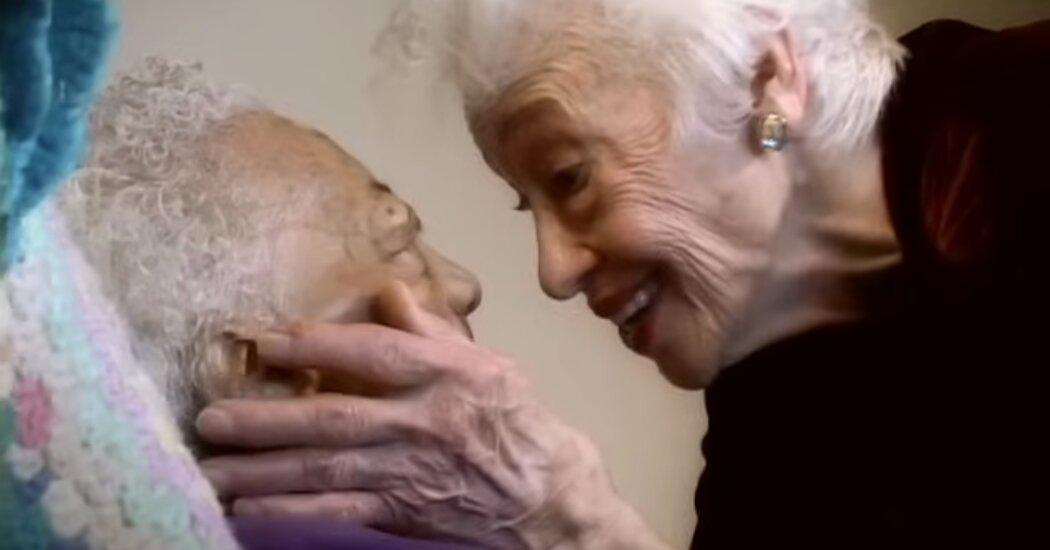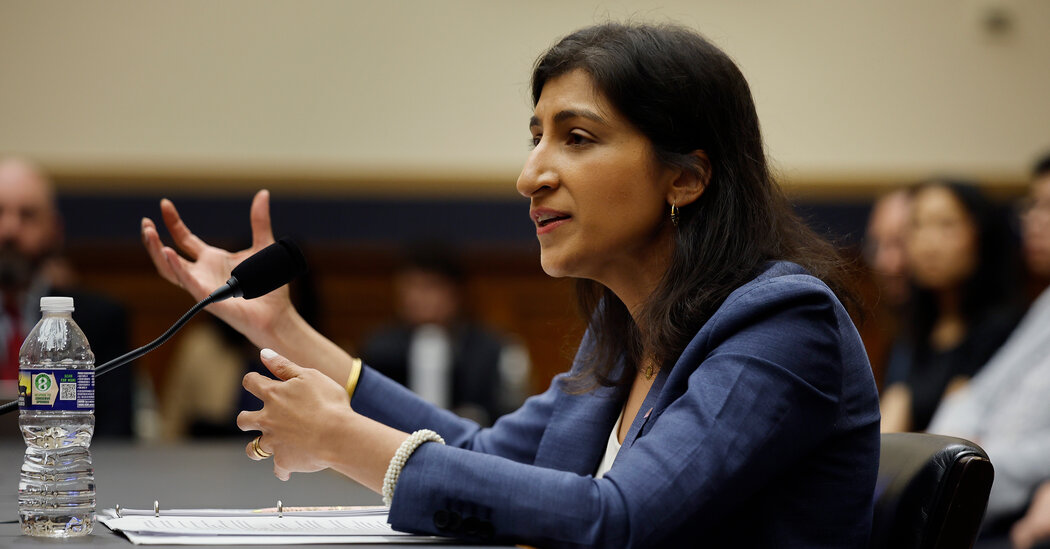The death certificate for Ryan Bagwell, a 19-year-old from Mission, Texas, states that he died from a fentanyl overdose.
His mother, Sandra Bagwell, says that is wrong.
On an April night in 2022, he swallowed one pill from a bottle of Percocet, a prescription painkiller that he and a friend bought earlier that day at a Mexican pharmacy just over the border. The next morning, his mother found him dead in his bedroom.
A federal law enforcement lab found that none of the pills from the bottle tested positive for Percocet. But they all tested positive for lethal quantities of fentanyl.
“Ryan was poisoned,” Mrs. Bagwell, an elementary-school reading specialist, said.
As millions of fentanyl-tainted pills inundate the United States masquerading as common medications, grief-scarred families have been pressing for a change in the language used to describe drug deaths. They want public health leaders, prosecutors and politicians to use “poisoning” instead of “overdose.” In their view, “overdose” suggests that their loved ones were addicted and responsible for their own deaths, whereas “poisoning” shows they were victims.
“If I tell someone that my child overdosed, they assume he was a junkie strung out on drugs,” said Stefanie Turner, a co-founder of Texas Against Fentanyl, a nonprofit organization that successfully lobbied Gov. Greg Abbott to authorize statewide awareness campaigns about so-called fentanyl poisoning.
“If I tell you my child was poisoned by fentanyl, you’re like, ‘What happened?’”, she continued. “It keeps the door open. But ‘overdose’ is a closed door.”
For decades, “overdose” has been used by federal, state and local health and law enforcement agencies to record drug fatalities. It has permeated the vocabulary of news reports and even popular culture. But over the last two years, family groups have challenged its reflexive use.
They are having some success. In September, Texas began requiring death certificates to say “poisoning” or “toxicity” rather than “overdose” if fentanyl was the leading cause. Legislation has been introduced in Ohio and Illinois for a similar change. A proposed Tennessee bill says that if fentanyl is implicated in a death, the cause “must be listed as accidental fentanyl poisoning,” not overdose.
Meetings with family groups helped persuade Anne Milgram, the administrator of the Drug Enforcement Administration, which seized more than 78 million fake pills in 2023, to routinely use “fentanyl poisoning” in interviews and at congressional hearings.
In a hearing last spring, Representative Mike Garcia, Republican of California, commended Ms. Milgram’s word choice, saying, “You’ve done an excellent job of calling these ‘poisonings.’ These are not overdoses. The victims don’t know they’re taking fentanyl in many cases. They think they’re taking Xanax, Vicodin, OxyContin.”
Last year, efforts to describe fentanyl-related deaths as poisonings began emerging in bills and resolutions in several states, including Louisiana, New Jersey, Ohio, Texas and Virginia, according to the National Conference on State Legislatures. Typically, these bills establish “Fentanyl Poisoning Awareness” weeks or months as public education initiatives.
“Language is really important because it shapes policy and other responses,” said Leo Beletsky, an expert on drug policy enforcement at Northeastern University School of Law. In the increasingly politicized realm of public health, word choice has become imbued with ever greater messaging power. During the pandemic, for example, the label “anti-vaxxer” fell into disrepute and was replaced by the more inclusive “vaccine-hesitant.”
Addiction is an area undergoing convulsive language change, and words like “alcoholic” and “addict” are now often seen as reductive and stigmatizing. Research shows that terms like “substance abuser” can even influence the behavior of doctors and other health care workers toward patients.
The word “poison” has emotional force, carrying reverberations from the Bible and classic fairy tales. “‘Poisoning’ feeds into that victim-villain narrative that some people are looking for,” said Sheila P. Vakharia, a senior researcher at the Drug Policy Alliance, an advocacy group.
But while “poisoning” offers many families a buffer from stigma, others whose loved ones died from taking illegal street drugs find it problematic. Using “poisoning” to distinguish certain deaths while letting others be labeled “overdose” creates a judgmental hierarchy of drug-related fatalities, they say.
Fay Martin said her son, Ryan, a commercial electrician, was prescribed opioid painkillers for a work injury. When he grew dependent on them, a doctor cut off his prescription. Ryan turned to heroin. Eventually, he went into treatment and stayed sober for a time. But, ashamed of his history of addiction, he kept to himself and gradually began to use drugs again. Believing that he was buying Xanax, he died from taking a fentanyl-tainted pill in 2021, the day after his 29th birthday.
Although he, like thousands of victims, died from a counterfeit pill, his mourning mother feels as if others look at her askance.
“When my son died, I felt that stigma from people, that there was personal responsibility involved because he had been using illicit drugs,” said Ms. Martin, from Corpus Christi, Texas. “But he didn’t get what he bargained for. He didn’t ask for the amount of fentanyl that was in his system. He wasn’t trying to die. He was trying to get high.”
To a growing number of prosecutors, if someone was poisoned by fentanyl, then the person who sold the drug was a poisoner — someone who knew or should have known that fentanyl could be lethal. More states are passing fentanyl homicide laws.
Critics note that the idea of a poisoner-villain doesn’t account for the complications of drug use. “That’s a little too simplified, because a lot of people who sell substances or share them with friends are also in the throes of a substance use disorder,” said Rachael Cooper, who directs an anti-stigma initiative at Shatterproof, an advocacy group.
People who sell or share drugs are usually many steps removed from those who mixed the batches. They would likely be unaware that their drugs contained deadly quantities of fentanyl, she said.
“In a nonpoliticized world, ‘poisoning’ would be accurate, but the way it’s being used now, it is reframing what is likely an accidental event and reimagines it as an intentional crime,” said Mr. Beletsky, who directs Northeastern’s Changing the Narrative project, which examines addiction stigma.
In toxicology and medicine, “overdose” and “poison” have value-neutral definitions, said Kaitlyn Brown, the clinical managing director of America’s Poison Centers, which represents and collects data from 55 centers nationwide.
“But the public is going to understand terminology differently than people who are immersed in the field, so I think there are important distinctions and nuances that the public can miss,” she said.
“Overdose” describes a greater dose of a substance than was considered safe, Dr. Brown explained. The effect may be harmful (heroin) or not (ibuprofen).
“Poisoning” means that harm indeed occurred. But it can be a poisoning from countless substances, including lead, alcohol and food, as well as fentanyl.
Both terms are used whether an event results in survival or death.
Until about 15 years ago, the Centers for Disease Control and Prevention, an esteemed source of data on national drug deaths, often used both terms interchangeably. A C.D.C. report detailing rising drug-related deaths in 2006 was titled “Unintentional Drug Poisoning in the United States.” It also referred to “unintentional drug overdose deaths.”
To streamline the growing drug fatality data from federal and state agencies, the C.D.C. shifted exclusively to “overdose.” (It now also collects statistics on reported nonfatal overdoses.) The C.D.C.’s Division of Overdose Prevention notes that “overdose” refers just to drugs, while “poisoning” refers to other substances, such as cleaning products.
When asked what unbiased word or phrase might best characterize drug deaths, experts in drug policy and treatment struggled.
Some preferred “overdose,” because it is entrenched in data reporting. Others use “accidental overdose” to underscore lack of intention. (Most overdoses are, in fact, accidental.) News outlets occasionally use both, reporting that a drug overdose took place due to fentanyl poisoning.
Addiction medicine experts note that because most of the street drug supply is now adulterated, “poisoning” is, indeed, the most straightforward, accurate term. Patients who buy cocaine and methamphetamine die because of fentanyl in the product, they note. Those addicted to fentanyl succumb from bags that have more toxic mixtures than they had anticipated.
Ms. Martin, whose son was killed by fentanyl, bitterly agrees. “He was poisoned,” she said. “He got the death penalty and his family got a life sentence.”







